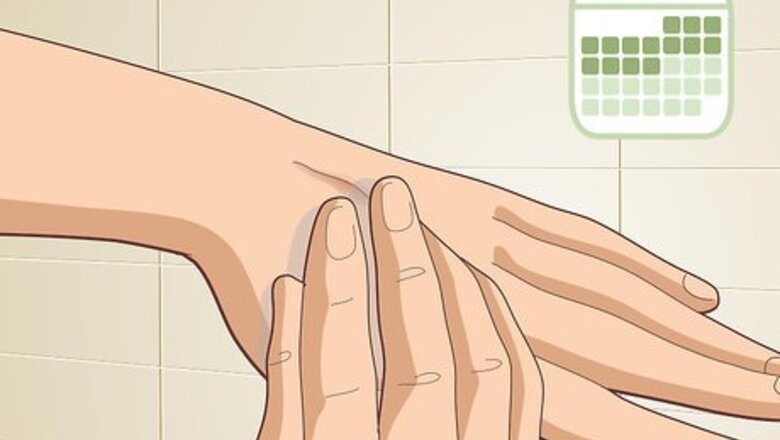
views
X
Trustworthy Source
PubMed Central
Journal archive from the U.S. National Institutes of Health
Go to source
They’re harmless, though, so you can try them out if you want to. Fortunately, if none of these treatments work, you can talk to a dermatologist and have a minor procedure to reduce your scars.
Remedies You Could Try
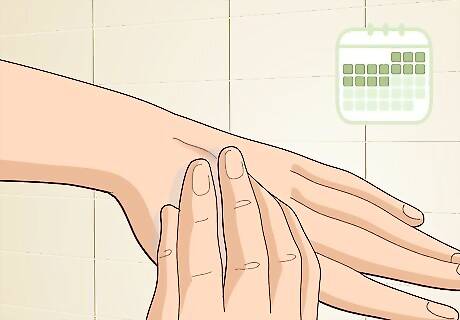
Massage the scar if it’s only a few weeks old. A gentle massage can bring nutrients to recent scars and help them heal. Apply light pressure along the length of the scar for a few minutes each day and see if you notice improvement in a few weeks. Make sure the wound is fully-healed before you massage it. Otherwise you could cause more damage.
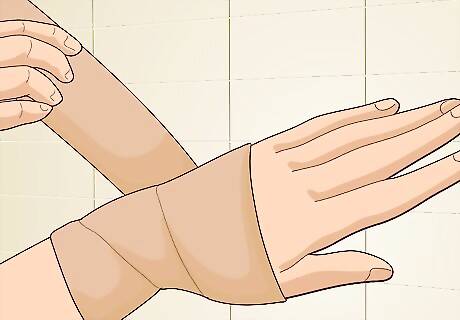
Use compression bandages to flatten raised scars. These coverings, made of silicon or a similar material, can press the scar down and make it flatter. This is a demonstrated scar treatment and one that dermatologists usually try before moving on to other methods.
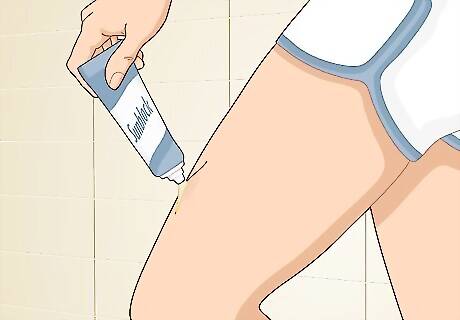
Apply sunblock to the scar so it doesn’t darken in the sun. Scars are sensitive to the sun, so always cover yours in sunblock before going out on sunny days. This won’t heal the scars, but it’ll prevent them from getting darker and more noticeable.
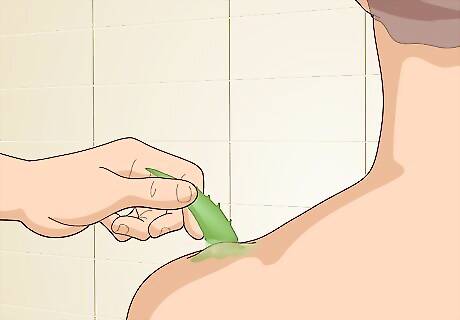
Moisturize the scar so it doesn’t dry out. While this may not make the scar disappear entirely, it can reduce redness and make the scar less visible. Try using a natural moisturizer like aloe vera, jojoba oil, or coconut oil once a day.
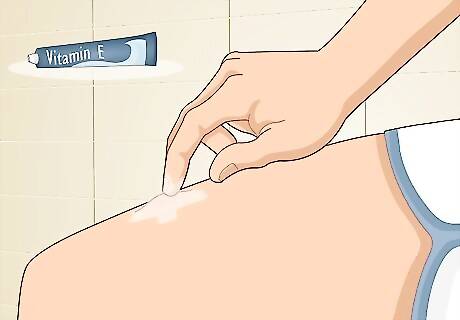
Rub vitamin E cream onto the scar daily. Vitamin E is a popular scar treatment, although scientific trials show that it isn’t as effective as some claim. Still, some people report that their scars clear up after topical vitamin E treatment. Vitamin E cream is only for scars, not active wounds. Applying the cream to a wound can impair healing and even cause a scar.
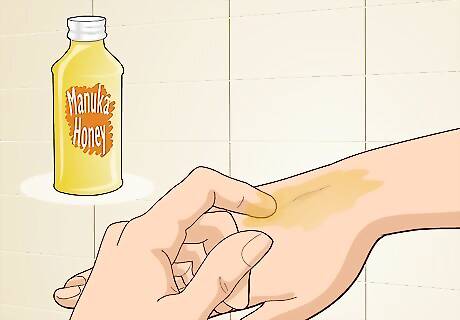
Apply manuka honey to the scar and see if that helps. While clinical trials have shown that honey doesn’t have a significant effect on scar formation, some people find that it makes scars less visible. Try leaving a thin layer of raw manuka honey on the scar for an hour each day and washing it off with warm water to see if that works.
Preventing Scars from Forming
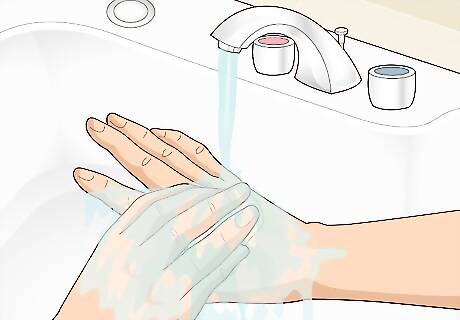
Keep all wounds clean to prevent infections. Infections increase inflammation and make scarring more likely. Wash all your cuts with clean water and soap, and keep them covered with a bandage until they heal.
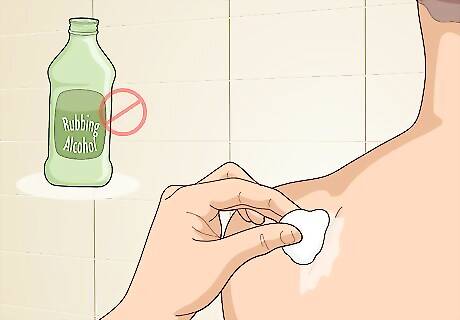
Avoid using alcohol, peroxide, or other harsh antiseptics on wounds. These strong chemicals inflame your skin and can actually cause scars. Stick with antibacterial soap to clean your wounds.
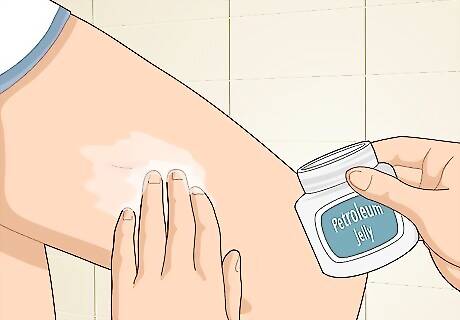
Use petroleum jelly to keep the wound moist while it heals. This helps protect your skin and prevent scab formation, which heals the wound faster. You could also use antibacterial creams, which moisturize the wound and prevent infections. If you clean the wound daily, however, you don’t need antibacterial creams.
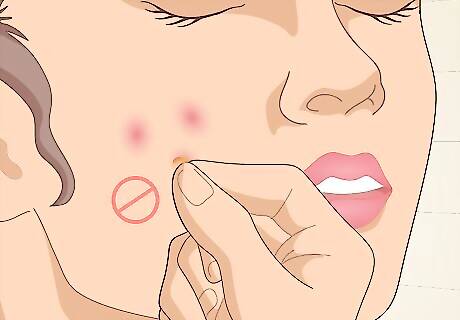
Avoid picking at scabs or acne. Let all of your cuts or pimples heal on their own. Picking at them slows the healing time and can cause scars.
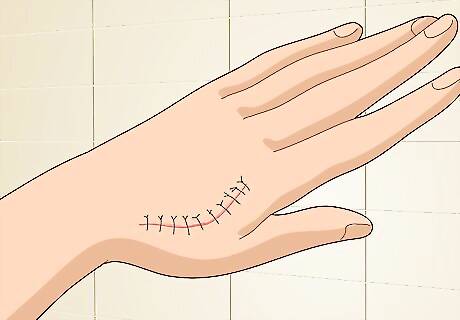
Get stitches for major wounds. Deep puncture or laceration wounds, or cuts that won’t stop bleeding require medical attention. If necessary, the doctor will stitch the wound and help prevent a scar.
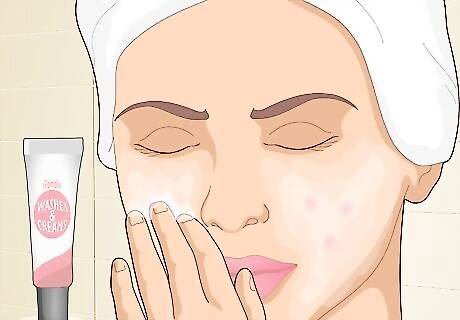
Treat your acne with gentle washes and creams. Acne can be a major cause for scars, especially if you pop or pick at your pimples. Resist this temptation and treat your acne with face washes instead. If you have serious acne that won’t go away, visit your dermatologist for further treatment.



















Comments
0 comment